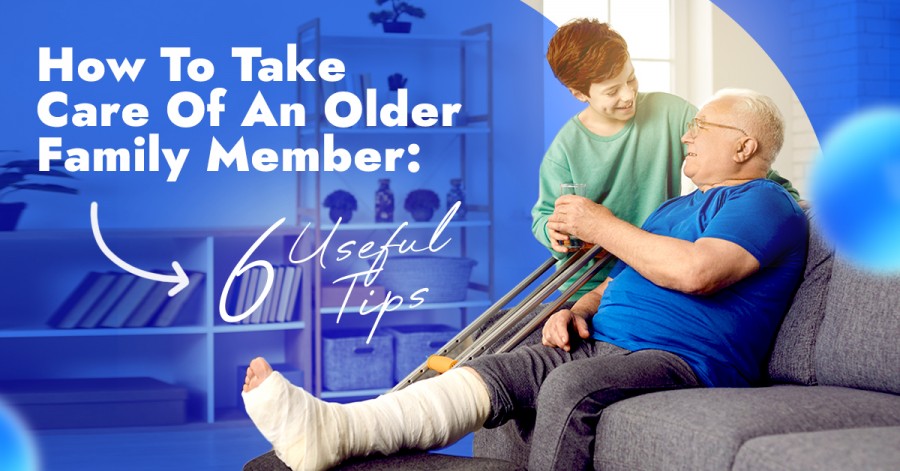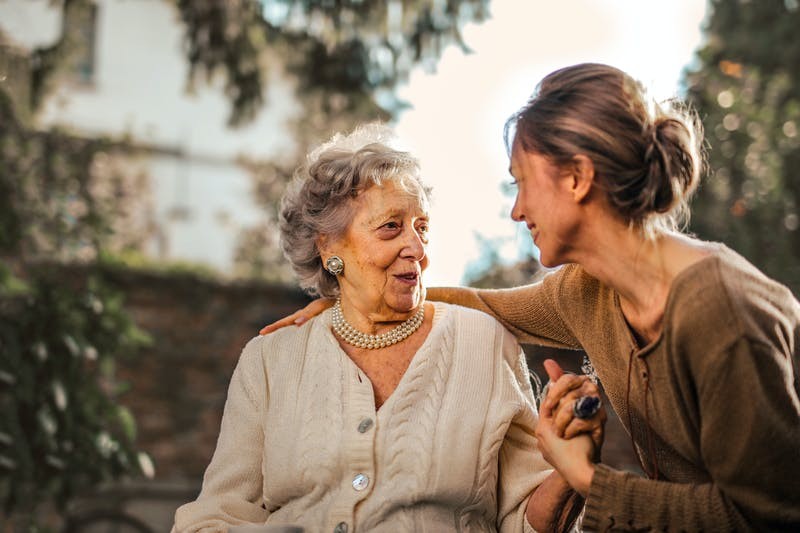How To Take Care Of An Older Family Member: 6 Useful Tips
Published 08 August 2022 at 12:43
Tickikids Blog Dubai > After-School Activities > How To Take Care Of An Older Family Member: 6 Useful Tips

The responsibility of taking care of an elderly family member can be daunting, but it is a task that many of us will have to face at some point in our lives. Thankfully, there are some steps you can take to make the process a little bit easier.
In this blog post, we will discuss six tips for taking care of an older family member. Keep these tips in mind and you will be able to provide your loved one with the best possible care!

Image Credit: Pexels
Learn The Common Issues Among Older Family Members
Older family members are more likely to experience a decline in physical and mental health, which can put a strain on their ability to care for themselves. It's important to be aware of the common issues older people face so that you can provide the best possible support.
Some common problems include:
- Mobility issues: Older adults may have trouble getting around, especially if they live alone. This can make everyday tasks like cooking and cleaning difficult.
- Cognitive decline: As we age, our brains don't work as well as they used to. This can lead to problems with memory, decision-making, and other cognitive functions.
- Chronic health conditions: Older adults are more likely to have chronic health conditions like heart disease, arthritis, and diabetes. These conditions can make it difficult to stay active and independent.
If you're not sure how to help an older family member, start by talking to their doctor. They can give you specific advice on the best way to support your loved one's health and well-being.
Learn About Your Loved One's Medical History
It's important to know about your loved one's medical history, especially as they get older. This information can help you make informed decisions about their care. Talk to their doctor and ask questions about their health conditions and medications.
If your loved one has a chronic illness, such as diabetes or heart disease, make sure you understand the treatment plan and what you need to do to help manage the condition. If you know your loved one has urinary issues, for example, you would have underpads readily available. Knowing this information can give you peace of mind and help you feel more prepared in case of an emergency.
Finally, stay up-to-date on vaccines. Older adults are at higher risk for complications from certain diseases, so it's important to make sure they're protected against them. Talk to their doctor about which vaccines they need and when to get them.
By taking the time to learn about your loved one's medical history, you can feel more confident in their care. And, if an emergency does occur, you'll be better prepared to handle it.
Establish A Daily Routine
This may include regular meal times, set bedtimes, and scheduled activities throughout the day.
Creating a routine will help your older family member feel more comfortable and less anxious about what is happening each day. It will also make it easier for you to manage their care since you will know what to expect each day.
If possible, try to involve your older family member in creating the daily routine. This way they will have a say in how their days are structured and can be sure that there are activities that they enjoy included in the schedule.
Once you have established a daily routine, be sure to stick to it as much as possible. Of course, there will be days when things come up that throw off the schedule, but do your best to stick to the routine as much as possible. This will provide a sense of stability for your older family member.
Stay Positive, Upbeat, And Supportive
While it might be difficult to remain positive all the time, it’s important to fake it until you make it, especially around your older family member. They need your support, and a positive attitude will go a long way.
If you can find humor in situations, that’s even better. Laughter is great medicine, after all.
Seek Out Help When Needed
One of the most important things you can do for an older family member is to seek out help when needed. There will come a time when you can't do it all on your own and when that happens, don't be afraid to ask for help from family, friends, or professional caregivers.
It's better to have some help than try to do everything yourself and end up feeling overwhelmed and stressed out.
Take Some Time For Yourself
It can be tough to juggle everything, and you might feel like you don't have any time for yourself. But it's important to make sure that you do. Taking some time out for self-care will help you to recharge and come back feeling refreshed. It doesn't have to be anything major, just something that helps you relax and unwind.

Image source: Pexels
Family caregivers are the unsung heroes of our society. They often put their own needs aside in order to take care of a loved one. We applaud your efforts and hope that these tips will make the experience easier for both of you.